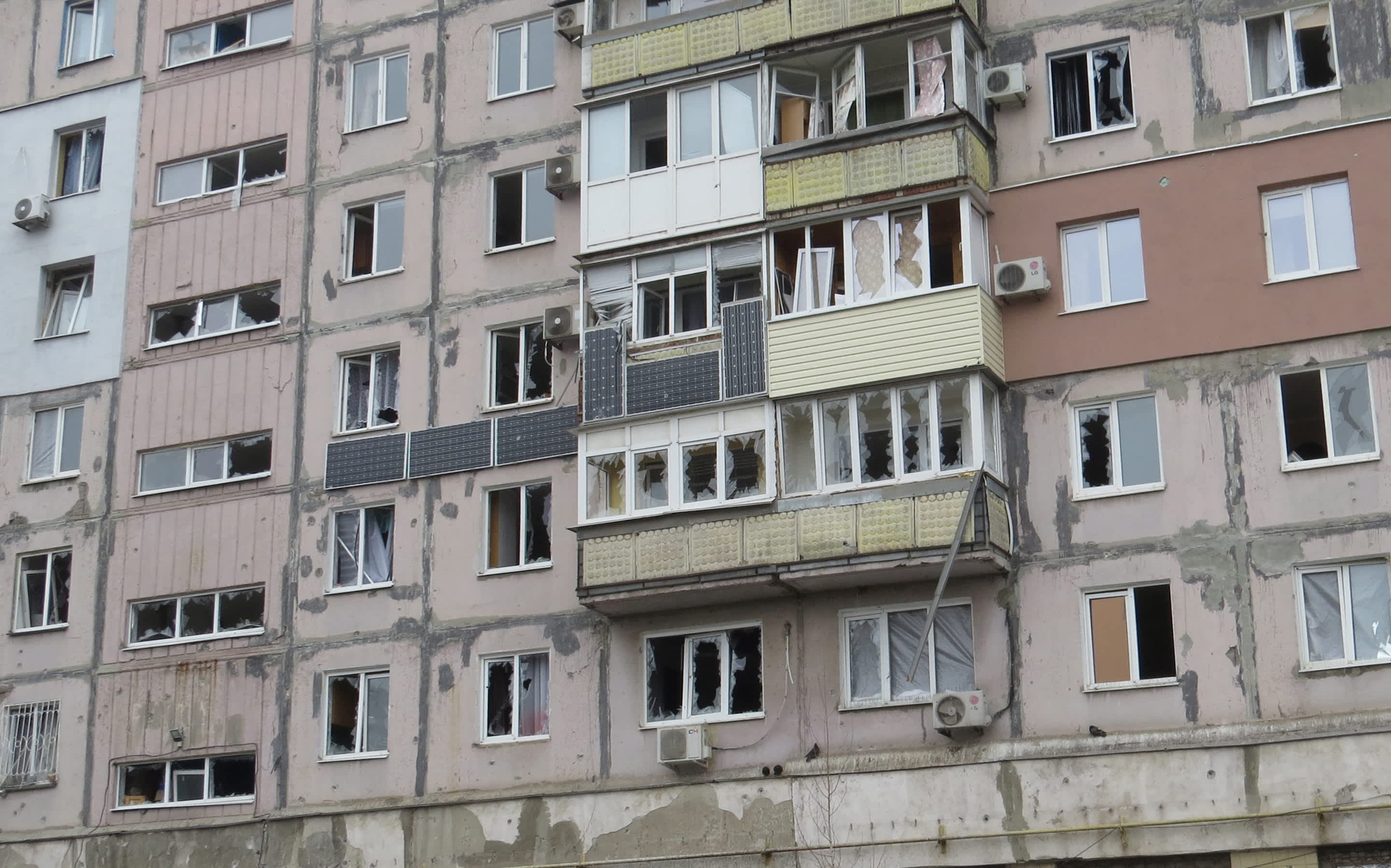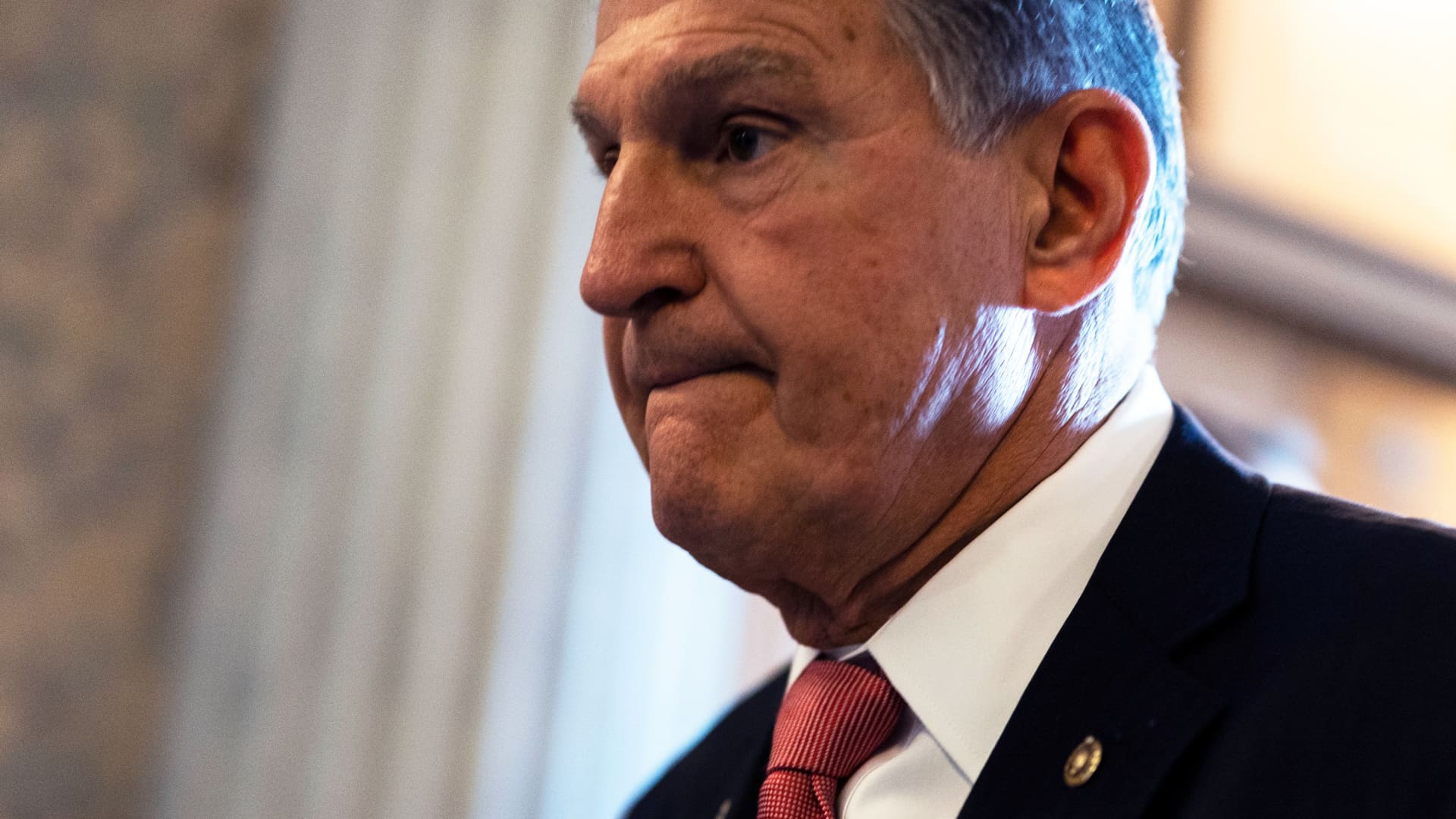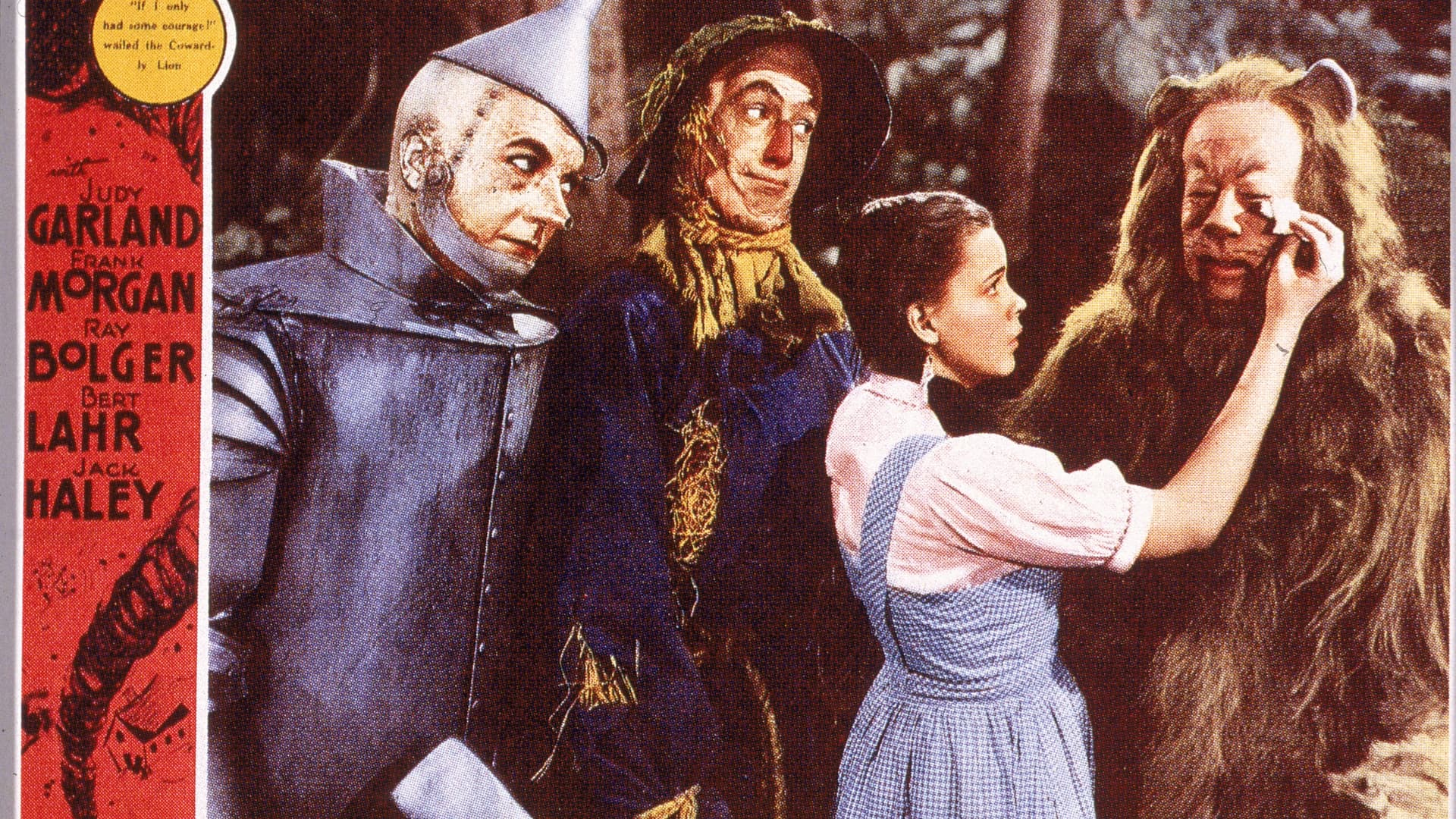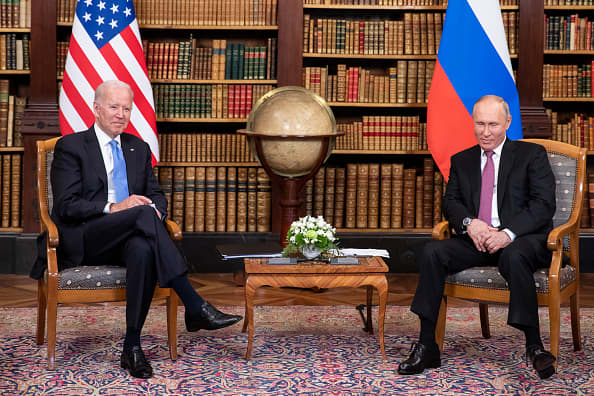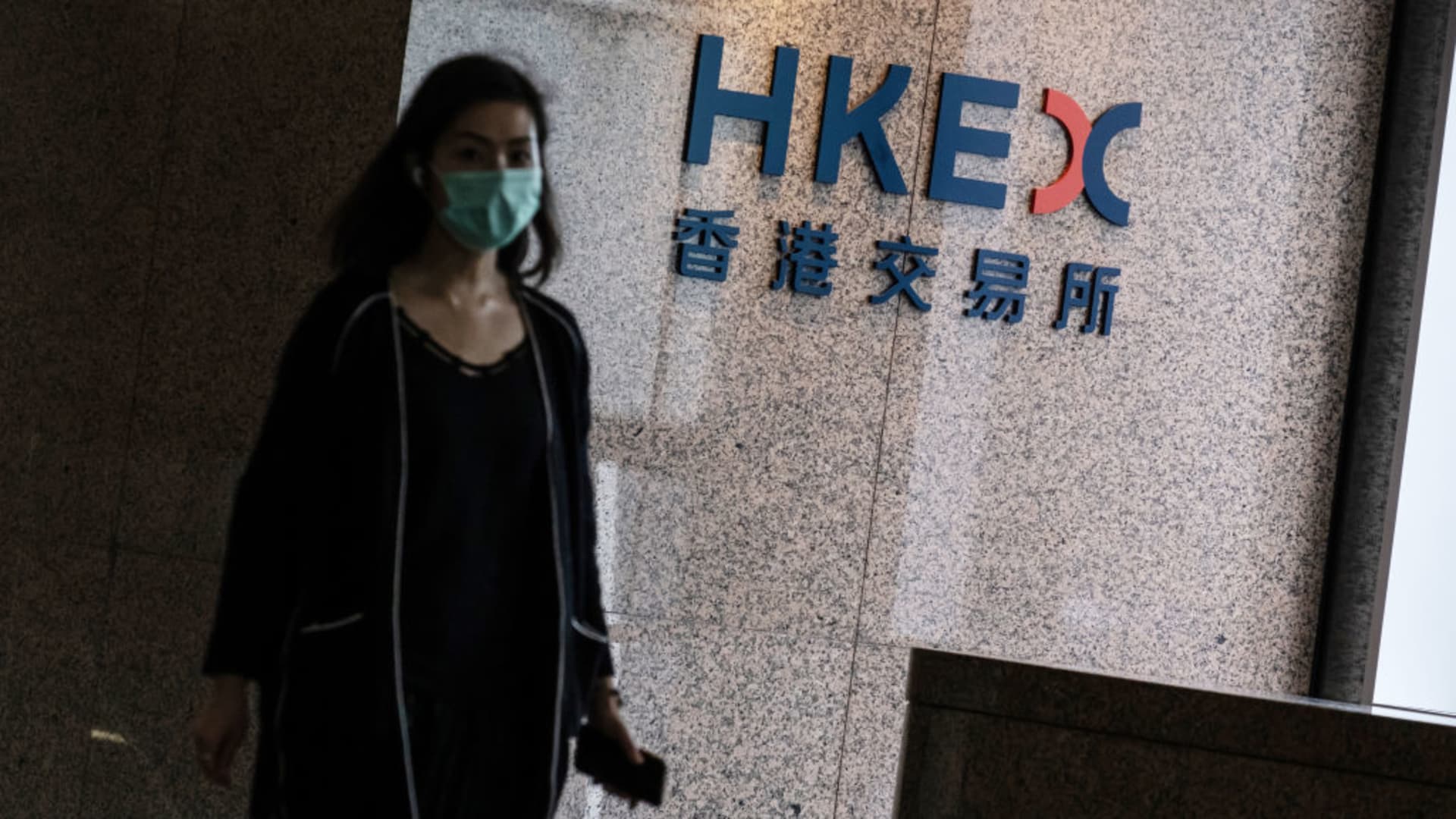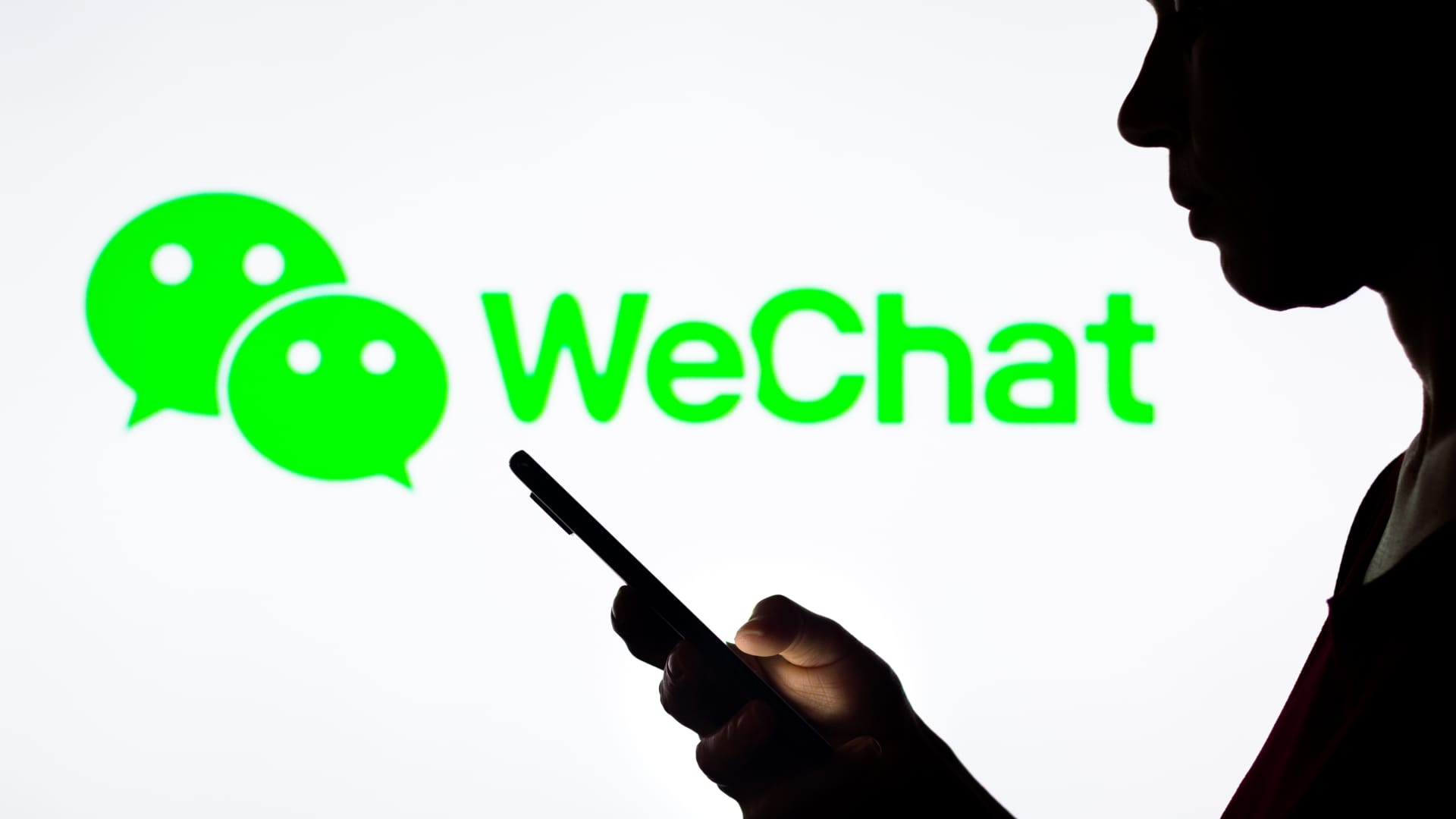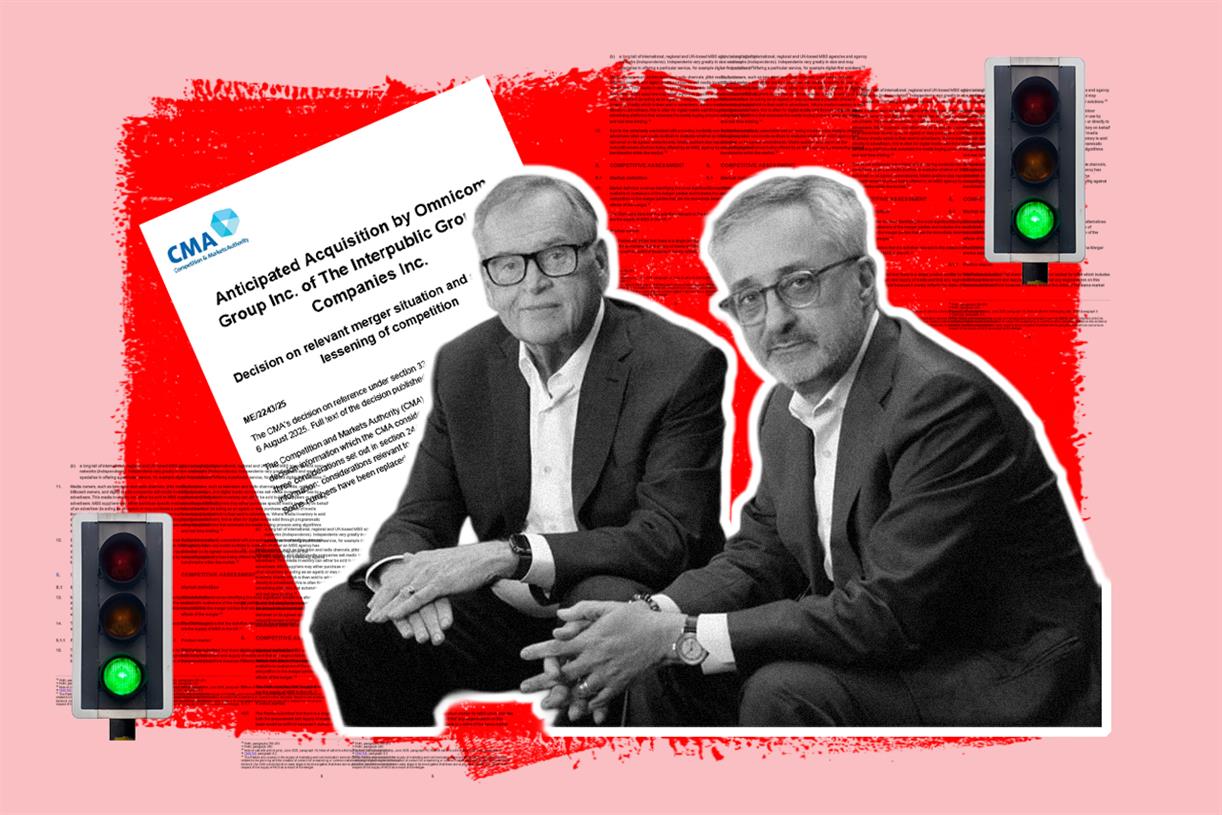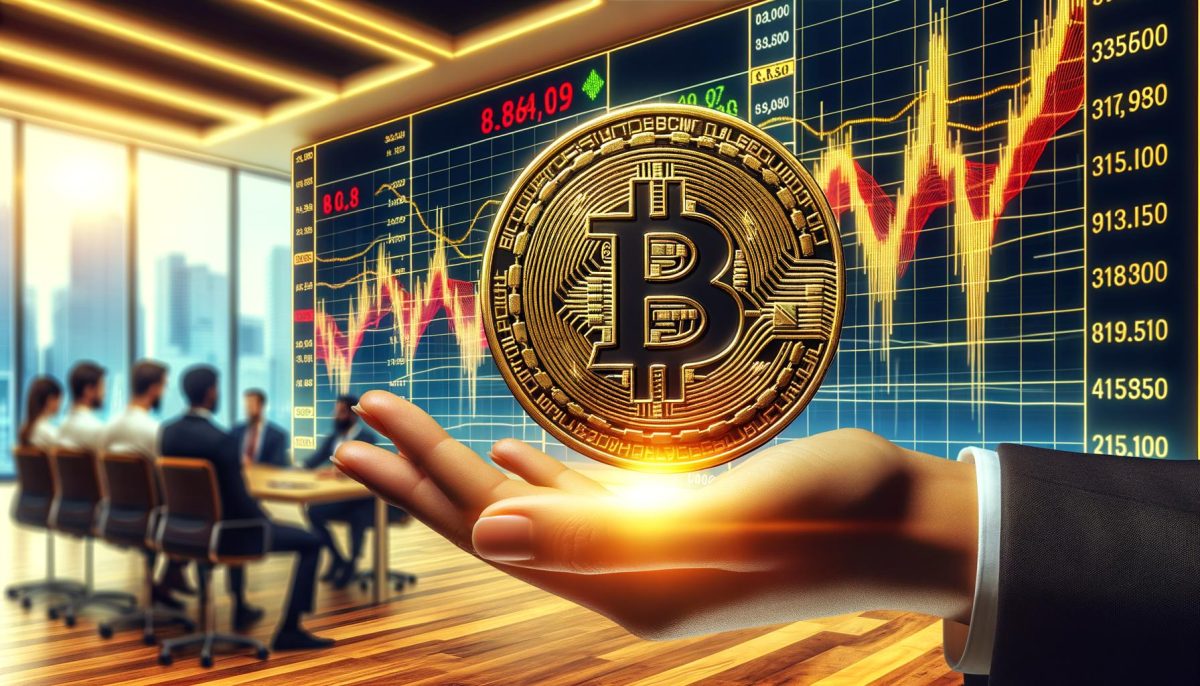Putin blames the West for Ukraine war in 'Victory Day' speech
President Vladimir Putin on Monday tried to defend Russia's unprovoked invasion of Ukraine in his annual "Victory Day" speech.

Russian President Vladimir Putin is seen on the screen as he delivers a speech during 77th anniversary of the Victory Day in Red Square in Moscow, Russia on May 09, 2022.
Anadolu Agency | Anadolu Agency | Getty Images
President Vladimir Putin on Monday tried to defend Russia's unprovoked invasion of Ukraine in his annual "Victory Day" speech, urging his forces on to victory while evoking Russia's triumph over Nazi Germany in World War II.
Speaking ahead of a massive parade of troops, tanks and military hardware in Moscow, Putin claimed Russia's invasion of Ukraine had been necessary because the West was "preparing for the invasion of our land, including Crimea," according to comments translated by Reuters.
It's unclear whether Putin was referring to Russia, or territory that Moscow considers to be Russian. This includes Crimea, which it annexed from Ukraine in 2014, and the eastern Donbas region, where Donetsk and Luhansk — two pro-Russian self-proclaimed "republics" — are located.
Russian President Vladimir Putin (R) and Defence Minister Sergei Shoigu (L) attending the Victory Day parade on Red Square.
Contributor | Getty Images News | Getty Images
Putin provided no evidence for his claims, but used the speech to lambast NATO and Ukraine's allies, and justify what Russia claims is a "special military operation" in Ukraine.
Before the invasion, Russia had amassed almost 200,000 troops along its border with Ukraine — insisting all the while that it had no intention of invading. There was little evidence of military aggression from Ukraine toward Russia, but Moscow's claims to the contrary were seen by many as a pretext for justifying its attack.
The remarks came as Russia commemorates one of the most important events on its national calendar — Victory Day — marking the Soviet Union's victory over Nazi Germany in World War II.
Russian honour guards march on Red Square during the Victory Day military parade in central Moscow on May 9, 2022.
Kirill Kudryavtsev | Afp | Getty Images
Evoking that triumph in his speech Monday, Putin urged the Russian army toward victory in Ukraine, saying there was a duty to remember those who defeated Nazism.
"Defending the Motherland when its fate is being decided has always been sacred," he said. "Today you are fighting for our people in Donbas, for the security of Russia, our homeland."
It was widely expected that Putin could use the speech to announce a victory in Ukraine or an all-out war on the country. Another possibility was even the mass mobilization of the Russian army and wider population, putting them on a wartime footing. Putin did not use the speech to announce any escalation, however, although his anti-Western rhetoric was as staunch as ever.
Donbas focus
Putin referred to the Donbas numerous times throughout the speech, appearing to double down on Russia's new strategy of focusing on the "liberation" of Donetsk and Luhansk.
The region has been home to some of the most intense fighting since Russia invaded Ukraine on Feb. 24, including a number of likely war crimes, such as the shelling of a theater in Mariupol, where civilians were sheltering, killing hundreds of people.
A security guard stands on Red Square prior to the Victory Day military parade in central Moscow on May 9, 2022. Russia celebrates the 77th anniversary of the victory over Nazi Germany during World War II.
Alexander Nemenov | Afp | Getty Images
The southern port city of Mariupol is particularly important to Putin as it would enable a land bridge between Russia and Crimea to be created, via the Donbas region.
Fighting in the east appears to be ramping up, and this weekend Russia bombed a village school in eastern Ukraine where people were sheltering, killing about 60, President Volodymyr Zelenskyy said on Sunday during an address to the G-7 leaders of the world's most industrial nations.
Russia has not commented on the latest attack. Previously, it has denied targeting civilian infrastructure despite much evidence to the contrary.
Russia's invasion has prompted international condemnation and swathes of wide-ranging economic sanctions on the country's key sectors, companies and individuals connected to the Kremlin.
Russian officers march during a rehearsal of the Victory Day parade on May 7, 2022 in Moscow, Russia.
Tiang Bin | China News Service | Getty Images
Putin has appeared unrepentant, however, vowing repeatedly to purge Ukraine of what he call its "Nazi" nationalist leadership — a baseless claim, widely discredited, that is seen as Putin's way of justifying the invasion to the domestic audience.
G-7 leaders vowed Sunday to further Russia's economic isolation and decried the invasion, saying in a statement that Putin's actions "bring shame on Russia and the historic sacrifices of its people," referring to the Soviet Union's role in defeating Nazi Germany.
Zelenskyy, who is himself Jewish, released a video address Sunday which was filmed in front of semi-destroyed Ukrainian apartment blocks following Russian shelling. In it, the Ukrainian president said that evil had returned, but insisted his country would not lose the war. "Russia will lose, because evil always loses," he said.

 Troov
Troov 







